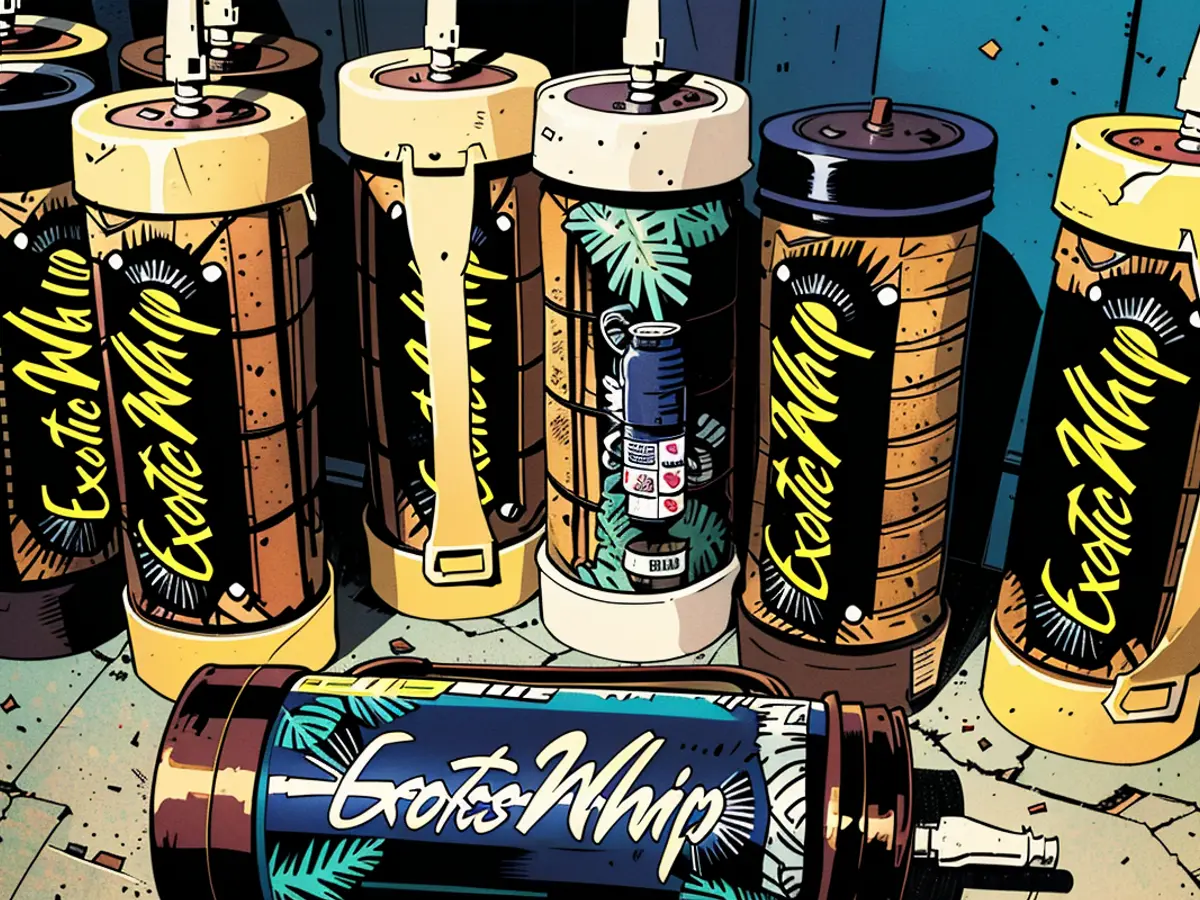- The Commission has also taken a number of steps to ensure that the waste is treated in a safe manner.
Hamburg's Waste Management Department laments significant damage to its waste disposal facilities due to laughing gas canisters found in household waste. Gas canisters thrown into trash bins or public waste receptacles have caused dangerous explosions in incinerators, the department reported. The damages and downtime of the facilities have resulted in costs in the six-figure range.
Laughing Gas Consumption on the Reeperbahn
A waste sorting analysis in the Reeperbahn area over the weekend of July 20/21 revealed alarming numbers. More than 70 laughing gas canisters were found in 125 waste receptacles. This result from a regular weekend suggests a much higher dark figure at large events. The waste management department plans to conduct further waste analyses and spot checks, and to collaborate with its disposal partners to find a solution to the problem. Ideally, laughing gas canisters should be returned through retailers or taken to recycling centers, the municipal company explained.
Legal Party Drug
Laughing gas, or dinitrogen monoxide (N2O), has been gaining popularity as a party drug in recent years. Users inhale the euphoria-inducing substance through balloons. In Germany, laughing gas is not currently classified as a narcotic and can be purchased, for example, in whipped cream cans or cartridges at supermarkets, tobacco shops, or online.
Sales Ban Demanded
In June, the state parliament of Schleswig-Holstein called for a sales ban on laughing gas for minors. The reason given was that consumption of laughing gas can lead to fainting, paralysis, and heart problems in extreme cases. There is also a risk of strong psychological dependence.
The waste management department in Hamburg emphasizes the importance of properly disposing of laughing gas canisters, as their improper disposal in waste bins or public receptacles can lead to health and safety hazards, such as dangerous explosions in incinerators. To address this issue, the department encourages the return of canisters through retailers or taking them to recycling centers to prevent further damage and potential accidents.








